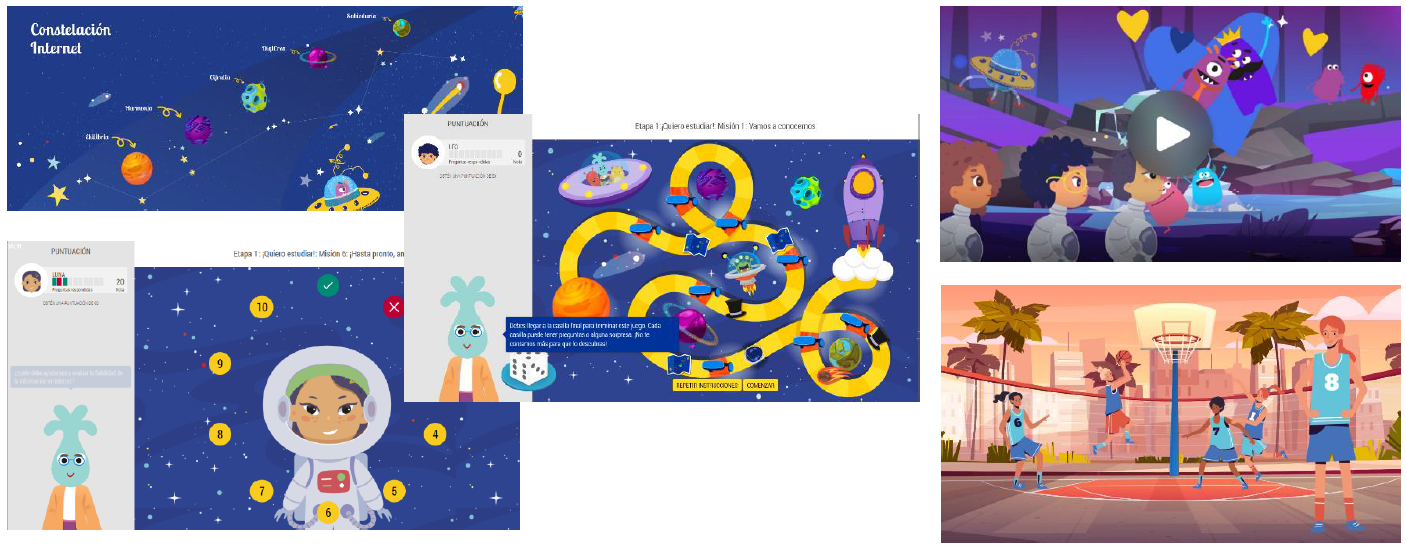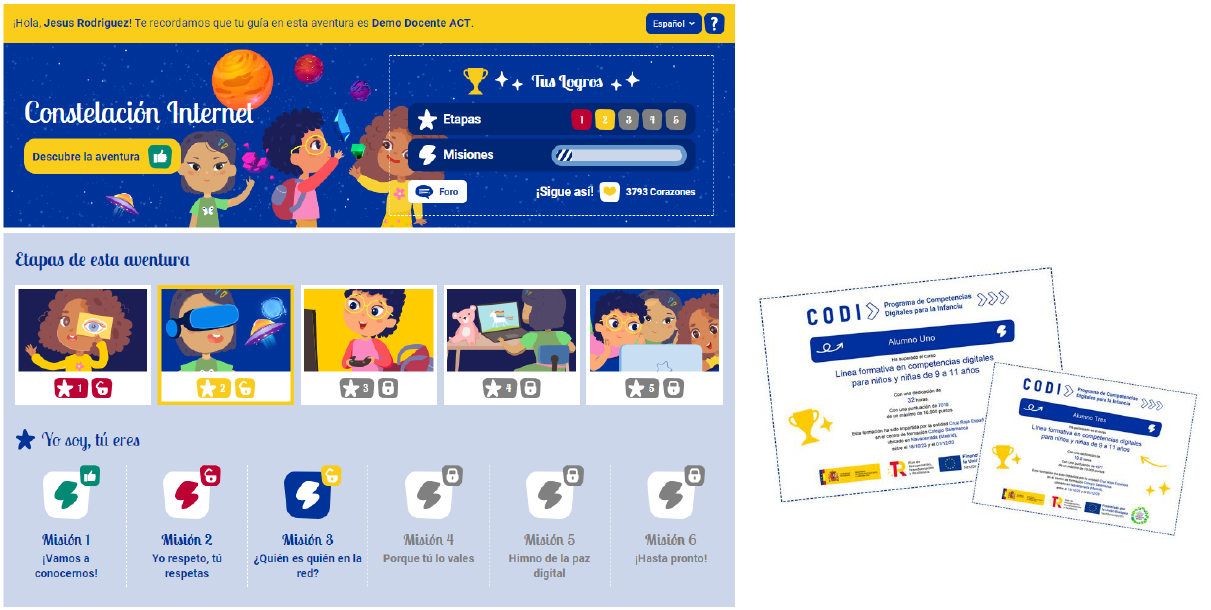The activities to be financed are classes during non-school hours and periods following the training content established by the European Commission's DigComp 2.1 European Digital Competence Framework. These extracurricular digital competency activities are developed in two training lines adapted according to age ranges:
- Basic digital competencies: boys and girls aged 9 to 13, further broken down into:
- ages 9 to 11
- ages 12 to 13
- Advanced digital competencies: teenagers aged 14 to 17 and young people aged 18 to 25 who have been through the protection system and up to 30 years old in the case of people with disabilities, promoting skills for employability with a gender perspective.
The training included in the CODI program is delivered predominantly in person, using digital materials and active learning methodologies, which include play and project-based learning, facilitating the engagement of children, teenagers, and young people in vulnerable situations.
For the program's rollout, the Ministry has developed a Digital Training Platform that includes materials and teaching guides. It also features a 30-hour training course for trainers. The platform allows for easy gathering of the main project monitoring indicators for subsequent reporting to the European Commission. Nevertheless, projects using other materials will also be funded, as long as they enable training children and teenagers in the complete set of competencies included in DigComp 2.1.
To obtain an accreditation certificate, children, teenagers, and young people participating in the program must dedicate at least 30 hours. However, trainers will have 90 hours of content on the digital training platform to tailor their classes to their students in the best possible way.

The contents and competencies of the training are:
- Dimension 1. Digital Literacy: ability to search, critically evaluate, and use digital tools and information effectively to make justified decisions.
- Dimension 2. Digital Safety and Resilience: ability to protect themselves and others from any harm in the digital environment.
- Dimension 3. Digital Participation and Agency: ability to interact fairly, participate, and positively influence society through ICT.
- Dimension 4. Emotional Intelligence
The CODI program aims not only to close the digital gap among young people in vulnerable situations but also to provide them with essential tools for their personal and professional development. Through close collaboration between Autonomous Communities and Third Sector entities, it aims to ensure that the resources and training reach those most in need, thus promoting a more equitable society with greater opportunities for all children and teenagers. This joint effort represents a crucial step towards a more digitally inclusive future, where all young people can access the competencies needed to face the challenges of the 21st century.


Automatically translated with OpenAI from Spanish